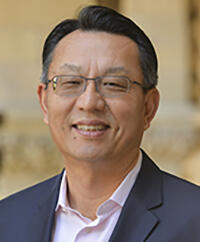This event is made possible by generous support from the Korea Foundation and other friends of the Korea Program.
This event is part of Shorenstein APARC's winter webinar series "Asian Politics and Policy in a Time of Uncertainty."
Judiciary independence is explicitly prescribed in the constitutions of many democracies. The courts are expected to be independent from the legislative or executive branch of the government. In practice, however, presidents can influence the judiciary by appointing judges who share political viewpoints with themselves to the highest courts. This was the case in both the Trump administration in the U.S. and the Moon administration in South Korea. Subsequently, there were several high-profile cases where the Supreme Court of South Korea made decisions on controversial and political cases in recent years, sometimes going against judicial norms and practices. In this panel, three legal scholars discuss these cases and the implications of the politicization of the judiciary for democracy in South Korea, and comparatively with the U.S.
Panelists:
Tom Ginsburg is the Leo Spitz Professor of International Law at the University of Chicago, where he also holds an appointment in the Political Science Department. He holds B.A., J.D. and Ph.D. degrees from the University of California at Berkeley. He currently co-directs the Comparative Constitutions Project, an NSF-funded data set cataloging the world’s constitutions since 1789, that runs the award-winning Constitute website. His latest book is How to Save a Constitutional Democracy (2018, with Aziz Huq), which won the Best Book Award from the International Society for Constitutional Law, and his other books include Judicial Reputation: A Comparative Theory (2015) (with Nuno Garoupa); The Endurance of National Constitutions (2009) (with Zachary Elkins and James Melton), which won the best book award from Comparative Democratization Section of American Political Science Association; and Judicial Review in New Democracies (2003), winner of the C. Herman Pritchett Award from APSA. He is a member of the American Academy of Arts and Sciences. Before entering law teaching, he served as a legal advisor at the Iran-U.S. Claims Tribunal, The Hague, Netherlands, and he has consulted with numerous international development agencies and governments on legal and constitutional reform. He currently serves a senior advisor on Constitution Building to International IDEA.
Seongwook Heo is a professor of public law at Seoul National University Law School. He teaches administrative law, environmental law, and law and economics. He received his Ph.D. in law and L.L.M., and bachelor's degree in economics, all from Seoul National University. His research interests include topics of economic regulations with analytic tools of economics. Recently he is mostly interested in laws concerning climate change, energy, food safety, IT & privacy, and judicial system. Prior to joining the SNU Law School in 2006, he had served as a judge of Seoul Central District Court in Korea. He was a presiding judge of a specialized panel for the intellectual property law cases in the Seoul Central District Court from 2005 to 2006. He is currently a board member of the Korean Public Law Association, the Korean Environmental Law Association, the Korean Law and Economics Association, and the Korean Regulation Law Association
Julie C. Suk is a Florence Rogatz Visiting Professor of Law (fall term) and research scholar at Yale Law School and professor of sociology & political science at The Graduate Center of City University of New York. She has a J.D. from Yale Law School, where she studied on a Paul & Daisy Soros Fellowship for New Americans and a D.Phil. in Politics from Oxford University, where she held a Marshall Scholarship. Suk is an interdisciplinary legal scholar, focusing on women as constitution-makers at the intersection of law, history, sociology, and politics. Her broader research interests include constitutional and social change; antidiscrimination law and its effects on social inequality; women, work, and family; civil litigation as an enforcement mechanism for public law; access to justice, including the past and future role of nonlawyers in solving the civil justice problems of poor and middle-income people; social, political, and legal theory; and law and literature. Her 2020 book, We the Women: The Unstoppable Mothers of the Equal Rights Amendment, explores the ERA’s past to guide its future, telling the stories of the forgotten women lawmakers and lawyers who shaped the ERA over a century. She is a frequent commentator in the media on legal issues affecting women, including The New York Times, The Washington Post, Bloomberg Law, Vox, and CBS News.
The panel discussion will be moderated by Yong Suk Lee, the SK Center Fellow at the Freeman Spogli Institute for International Studies and deputy director of the Korea Program at Stanford's Shorenstein APARC.




















